Transcendence is Transformative.
We all seek meaning and yearn for something to orient and define our lives. For many this is God, while for others it is nature, science, beauty, or a sense of connection to humanity. Regardless of the source, experiencing transcendence is transformative. These moments engage our thoughts, emotions, and senses. They move us, stir us, and inspire us to become our best selves with and for others. Because of the defining nature of transcendence, a connection to a loving source is essential. Spirituality is our response to transcendence, and our connection to a loving source ensures that our transcendence nurtures our spirituality in our pursuit of a thriving life. Are you curious about how transcendence can deepen your spirituality?
A curated content list
Discover more about transcendence and spirituality
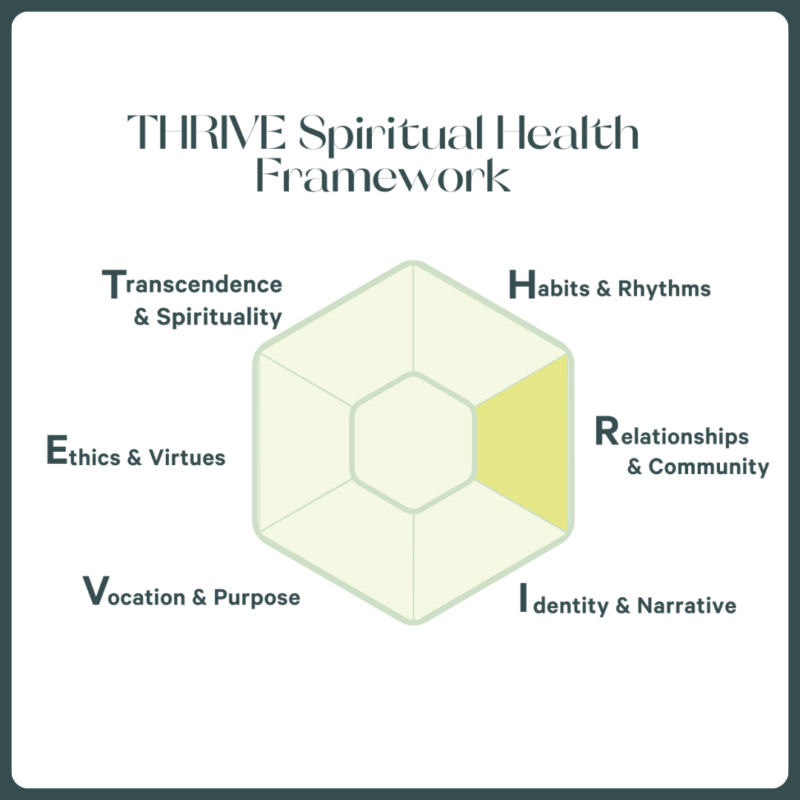
The Churchgoing Bust: Rebuilding Spiritual Communities in 21st century America
Psychological resources can help leaders build stronger communities. Thrive offers a model of spiritual health for thriving communities.

A Practice: Dr. Cynthia Eriksson Body Scan for Awareness
Dr. Eriksson guides you through a practice of scanning the body to cultivate awareness of sensation present there. This technique is an important first step – regulation – of building a resilience practice.
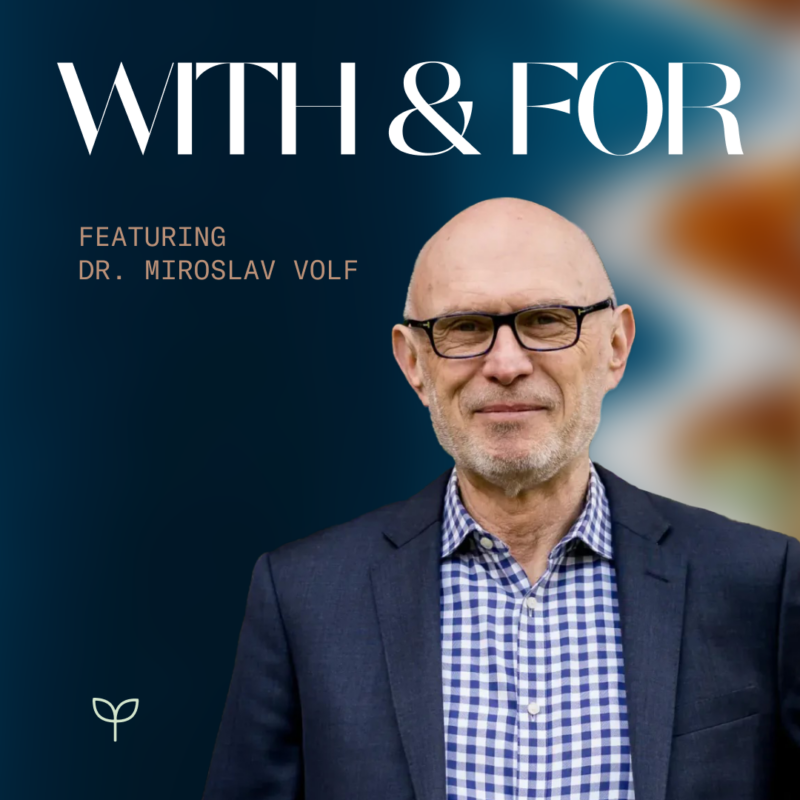
Life Worth Living: Faith, Flourishing, and What Matters Most with Dr. Miroslav Volf
Miroslav Volf (Yale University) wants to reorient theology around human flourishing. For too long, theology has left practical transformation and lived experience out of the picture. But when we draw together Christian faith and spirituality within a holistic framework of understanding who we are, why we’re here, what we’re called to, and how we should live—we’ll find a life that is truly worth living. (Includes a meditative spiritual exercise by Dr. Pam King, “Creating Space.”)…

Discovering Joy
This post is based upon an interview between Psychology Today and Dr. Pam King

Summer of Love: Is it Possible to Create a More Loving World?
Love is more than a feeling. It is a conscious decision, and requires practices and skills in order to live it out.

Pursuing Goals: The Castle, the Estate, and The Long Walk
Guest blogger, Amy Dunn, reflects on being present in the day to day of our lives as we pursue goals and purpose. The journey is where we live, even as we keep our eye on a telos.

Loved, Held, Guided, and Never Alone: The Science of Spirituality with Dr. Lisa Miller
Dr. Lisa Miller discusses the glorious complexity of the human spiritual brain, which reveals our innate capacity for transcendence. Drawing on research in psychology and neuroscience, Lisa helps people with practical, tangible, and evidence-backed interventions that lead to their thriving and spiritual health. She explains why spirituality is so transformative and challenges us to reimagine religion, faith, and spirituality as an experience of love from beyond us. “Loved, held, guided, and never alone. We are wired to be able to perceive that. And when we do, everything in our world is reordered. And in fact, of all the dimensions of lived spiritual life, that which most strengthens the awakened brain is love of neighbor—to one another. We are able to draw closer to God.” — Lisa Miller (Columbia University, author of The Awakened Brain) What does science have to say about spirituality? Dr. Lisa Miller, clinical psychologist and researcher, has made the…

Meaning Making (Part 2): What Does Spirituality Have to do with Meaning-Making?
In order to assign meaning we must believe in a bigger picture.

Have you ever experienced transcendence?
Chances are you have, maybe without even realizing it. Here are some questions to guide you towards an awakened, deepening transcendence practice in your life.

Adolescents and Spirituality: Do Mountaintop Spiritual Experiences Really Make a Difference?
A Thrive Scholars Fellow shares transcendent experiences along with caring adults can stimulate spirituality and virtue development in youth.

The Power of Positive Emotions: Pursuing Awe
Awe is a powerful positive emotion. Dr. Susan Mangan explains how pursuing awe can build resilience through difficulty.

Transcendence (Part 2): How Transcendence Can Lead the Way to an Open Heart
Believing in Something Greater Than Ourselves is an integral part of our spiritual health.

Transcendence (Part 1): The Beauty of Transcendence and How it Informs our Spirituality
Our minds are designed to receive loving transcendent experiences. Learn more in this post and try some practices.

Trailer: Welcome to With & For: Spiritual Health, Wholeness, and a Life of Thriving
Dr. Pam King introduces With & For—a podcast for growth seekers and people-focused leaders that plumbs the depths of psychological science and spiritual wisdom to offer practical guidance towards spiritual health, wholeness, and a life of thriving. Coming soon on January 8, 2024! Listen now and subscribe! Listen now and subscribe to With & For—a new podcast from The Thrive Center at Fuller Theological Seminary. Starting January 8, 2024 the show will explore insights from psychology to understand what it means to become spiritually healthy and thrive. Every Monday, Dr. Pam King will host expert guests whose work sheds light on practical steps toward growing fully alive, connected, purposeful, and whole. And don’t miss “Playing with Light”, for a weekly series of short reflections from Dr. Pam King, all in the With & For podcast feed.

A Practice: Observing the Body for Understanding
A daily spiritual practice focusing on embodied emotions provides insight into what matters most and informs purpose.

The Balm of Being Loved and Held
How does love contributing to thriving? The practice of the 5 B's of love is explained here.

A Practice: How might we access the transcendent?
Accessing the transcendent can be pursued with tangible practices.

The Power of Transcendence and Spirituality in a Modern World
Pamela King reflects on the church of her youth and considers lessons from her current research findings about spirituality for the future.

A Practice: Moments of transcendence
Transcendent experiences are emotional responses that inform how individuals see themselves in relationship to God, others, and the world. Here's how to get more of these experiences.

Towards a Neuroscience of Spiritual Formation
Summary In this panel discussion hosted by the Thrive Center, Pamela Ebstyne King interviews neuroscientists, Mary Helen Immordino-Yang and Rodrigo Riveros on what their research reveals when people grow in the capacity to have transcendent thoughts and emotions that lead to thriving. They address the importance of having culturally grounded, safe, and close relationships and the importance of connecting daily activities, choices, observations, and experiences to bigger, systems-level, and transcendent narratives for meaning-making and spiritual formation. Psychologist and reverend, Brad Strawn joins the conversation to offer perspectives as a clinician and pastor on the importance of being embodied persons that are embedded in relationships, communities, and cultural narrative. About the Panelists Pamela Ebstyne King is the executive director of the Thrive Center and serves as the Peter L. Benson Professor of Applied Developmental Science at Fuller Theological Seminary. Her primary academic interests are applied research at the intersection of…

A Practice: The Five B’s of Thriving by Accessing God’s Love
Our research-based framework highlights the 5 modes in which we can actively develop and strengthen your thriving "muscles."

Experiencing and Emitting God’s Love
How do we love our neighbor as ourself? Jilleen Westbrook shares a practice to access love for God, self, and others.

Moral Elevation (Part 2): Practices for Elevating Ourselves and Our World
Postdoctoral Researcher, Dr. Susan Mangan provides research-based activities to help us experience the positive emotion of elevation.

Moral Elevation (Part 1): The Snowball Effect of Small Inspirations
Dr. Susan Mangan explains the role and benefits of moral elevation in inspiring us to help our communities.

Spiritual & Mental Health for Children/Teens During COVID-19
Summary What impact has the pandemic had on the mental and spiritual health of children and teens, and how can the church help? Hosted by the Humanitarian Disaster Institute and National Association of Evangelicals, this webinar discusses how the church can respond to the spiritual and mental health needs of children and teens as parents and educators prepare for the back-to-school season during the COVID-19 pandemic. CEO of KidzMatter, Ryan Frank, clinical psychologist at Florissa Center, Beth Cunningham and executive director of the Thrive Center, Pamela King share insights and answers to the questions looming in many church leaders’ minds. Additional Resources Access the PowerPoint slides for this webinar here. Staying Grounded, Connected, and Directed through Disruption—Blog post by Pamela King on the Thrive Center. Editor’s Note This webinar was originally published by the Humanitarian Disaster Institute.

A Practice: Embracing Self-Compassion During Times of Grief
Guest blogger, Stephanie Trudeau talks collective loss and how we can approach our feelings with compassion and grace.

The Three Religious and Spiritual Assets of Youth Thriving
Executive director, Pamela King shares the 3 dimensions of religion and spirituality that promote positive youth development.

Grace: Infinity & Beyond
Summary Pamela Ebstyne King, Peter L. Benson Associate Professor of Applied Developmental Science, responds to Peter C. Hill’s lecture “Grace as a Religiously Inflected Experience.” The Integration Symposium is an annual conference held by the School of Psychology on the integration of psychology and theology. At the 2019 conference, Peter C. Hill, professor of psychology at Biola University’s Rosemead School of Psychology, presented on “A Psychology of the Ordinary: Humility, Grace, and Gratitude as Religious Inflections of the World.” His three lectures, and the faculty responses to each, explored how humility, grace, and gratitude—as elements of religious experience—impact everyday human life. Listen to all of the 2019 integration lectures and responses on Fuller.edu/Studio. Author’s Note This talk was given at the 2019 Integration Symposium and was originally published on FULLER Studio. About the Author Pamela Ebstyne King is the executive director…
30 Content Resources
A curated content list
Discover more about Thrive's research

Study of Spirituality in America – Structural Topic Modeling
Our team uses cutting-edge structural model analysis to understand diverse spirituality in the U.S.

“We are Protected”: Examining youth perceptions of safety
“We are Protected”: Examining youth perceptions of safety within a faith-based positive a faith-based positive youth development program in El Salvador / Journal of Youth Development

Religion as Fertile Ground
Abstract An extensive body of research points toward spirituality and religiousness as resources for promoting human thriving. People with strong connections to the transcendent and religious meaning in life often view morals and values as central to their self-concepts. Although moral identity theory and contemporary views of virtue development emphasize the importance of narrative identity for habituated moral action, the two are often discussed in isolation of each other. In this chapter, the authors highlight how their commonality is particularly evident when examining the potential of religion to provide a transcendent self-narrative that leads to virtue formation and moral action within social contexts. This chapter describes how young people integrate religion and morality in their own lives, and it provides a broad overview of research linking religion to moral and virtue development through an ideological, social, and transcendent context.

Measuring Spirituality Among Adolescents
Pamela King and team test the psychological viability of the MDAS scale among diverse youth.

Shades of Gratitude
Our team seeks to test and develop a theoretical framework to help guide future research on gratitude.

How diverse beliefs shape the experience of transcendent gratitude
Citation Nelson, J., Mangan, S., Baer, R. A., Ramdass, J. V., & King, P. E. et al. (2024). How diverse beliefs shape the experience of transcendent gratitude, The Journal of Positive Psychology, 19(1), 11-24. Abstract As a novel contribution, this study considers transcendent gratitude (e.g. gratitude towards non-human benefactors such as God, Science, or Karma) across diverse belief systems. The sample included 619 participants (M age 37.5, 52.6% female) across the U.S. with beliefs across three distinct categories: a) Theistic; 38.4%), b) Spiritual but not theistic; 26.4%, and c) Non-theistic/Non-spiritual (Other); 35.2%. Across the three belief systems, we tested the associations between gratitude and theistic predictors (e.g. feeling comfort or anger towards God, fidelity, interaction with God, attachment to God, and transcendent indebtedness) and non-theistic predictors (e.g. life comprehension, primal beliefs, prosocial behavioral intentions, and interpersonal…

Religious involvement in adolescence
Citation Vaughn, J. M., & King, P. E. (2024). Religious involvement. In Encyclopedia of Adolescence (pp. 411–421). Elsevier. https://doi.org/10.1016/B978-0-323-96023-6.00002-6 Abstract Religion and spirituality are well-established contributors to adolescent well-being and development. Though efforts to identify the specific manners through which they may influence adolescents are ongoing, involvement in a religious congregation or community appears particularly beneficial. Religious involvement, which can take many forms, offers adolescents increased access to an abundance of resources – social, ideological, and transcendent. Accordingly, after describing trends in adolescent religiosity and religious involvement, we unpack what it means for an adolescent to be involved in their religion and what this involvement offers in terms of resources. We conclude with a summary of the positive and negative outcomes of adolescent religious involvement. Copyright Year: 2024 Holder: Elsevier Inc. DOI: https://doi.org/10.1016/B978-0-323-96023-6.00002-6…

Spiritual Formation in Theological Education: A Multi-case Exploration on Seminaries and Student Development
Citation Wang, D. C., Reed, A., Greggo, S., Bowersox, L., Drennan, A., Strawn, B., King, P. E., Porter, S. L., & Hill, P. C. (2023). Spiritual Formation in Theological Education: A Multi-case Exploration on Seminaries and Student Development. Christian Education Journal: Research on Educational Ministry, 20(1), 65–86. https://doi.org/10.1177/07398913231177722 Abstract In recent decades, theological schools have demonstrated increased interest in educational models that not only transmit knowledge and skill to students, but also prepare them to have the character and virtue dispositions needed to successfully navigate the moral challenges that await them in future ministry settings. This shift is reflected in the most recent 2020 accreditation standards of the Association of Theological Schools (ATS), which highlight the importance of “personal and spiritual formation” as a key facet to seminary programs. Research conducted by the ATS (2018) into how seminaries understood the terms “personal and spiritual formation” revealed that over 40%…

Religion, Spirituality, and Youth Thriving: Investigating the Roles of the Developing Mind and Meaning-Making
Citation King, P. E., Mangan, S., & Riveros, R. (2023). Religion, Spirituality, and Youth Thriving: Investigating the Roles of the Developing Mind and Meaning-Making. In E. B. Davis, E. L. Worthington, & S. A. Schnitker (Eds.), Handbook of Positive Psychology, Religion, and Spirituality (pp. 263–277). Springer International Publishing. https://doi.org/10.1007/978-3-031-10274-5_17 Abstract In this chapter, we draw on positive developmental psychology, psychology of religion and spirituality, and developmental neuroscience to explore how youth religiousness and spirituality contribute to thriving through the process of meaning-making. Thriving involves the individual, relational, and aspirational development necessary to pursue a life purpose that is meaningful to the self and one’s surroundings. Meaning-making is the process of constructing and internalizing abstract beliefs (about oneself, the world, and one’s priorities) into salient values that contribute to the moral development necessary to thrive. When youth consider abstract ideas in the context of their actions, transcendent emotions, and the broader…

Spirituality and meaning-making across contexts: Structural topic modeling of the Fetzer spirituality study in the United States
Citation Kim, S.-H., King, P. E., & Trudeau, S. M. (2024). Spirituality and meaning-making across contexts: Structural topic modeling of the Fetzer spirituality study in the United States. Psychology of Religion and Spirituality, 16(2), 203–213. Abstract Given the significant shifts in religious affiliation and spiritual seeking over the last 20 years, a rigorous and updated understanding of how spirituality functions are essential to understand the impact of these changes on individuals and society. Drawing on an integrated view of spirituality informed by relational developmental systems (RDS) and meaning-making approaches, in the present study, we sought to identify commonalities within varied expressions of spirituality described within interviews of a religiously and spiritually diverse sample of adults. Structural topic modeling (STM) was applied to infer the latent themes inherent in the in-depth narratives of 16 participants from the Fetzer Institute’s (2020) Study of Spirituality in the United States. Following STM procedures, 1,298 terms…

Agentic and Receptive Hope: Understanding Hope in the Context of Religiousness and Spirituality through the Narratives of Salvadoran Youth
Citation Vaughn, J. M., King, P. E., Mangan, S., Noe, S., Hay, S., O’neil, B., … & Sim, A. T. R. (2022). Agentic and receptive hope: Understanding hope in the context of religiousness and spirituality through the narratives of Salvadoran youth. Religions, 13(4), 376. Abstract Hope contributes to positive development in adolescents, and religious and spiritual contexts may be particularly important for developing and supporting hope. However, extant literature on hope, religion, and spirituality neglects their synergistic relation, leaving questions about how they work together to support development. In this study, we explore how religiousness and spirituality (R/S) inform hope by identifying unique synergies that might be particularly useful in difficult contexts. Multilevel qualitative content analyses of interviews conducted with 18 thriving Salvadoran adolescents (50% female, Mage = 16.39 years, SD = 1.83) involved in a faith-based program provided evidence that the ideological and relational resources associated with R/S informed these adolescents’…

La spiritualité comme boussole : accompagner les jeunes vers l’épanouissement
Citation Ebstyne King, P., & Tiret, F. (2022). La spiritualité comme boussole: Accompagner les jeunes vers l’épanouissement: In Les spiritualités dans le travail socio-éducatif (pp. 91–116). Érès. https://doi.org/10.3917/eres.verba.2022.01.0091 Abstract As our world and cultures change radically, many conventional civil, social and religious institutions that served to forge social bonds in the Western world are eroding. Digital platforms such as Facebook, Snapchat and Instagram are poised to represent the authority figure, a role previously reserved for embodied organizations. Due to this development, young people grow up with networks where honesty, convictions, respect for privacy, responsibility and support are often lacking. Consequently, many young people build themselves through contradictory narratives, without a clear vision of the world or a secure sense of belonging. This lack of anchoring and connection poses many challenges in constructing identity, meaning and life goals–which are among the important elements of adolescent development. This is why many youth…

Finding the Extraordinary in the Ordinary: Case Studies of Spiritual Exemplars
Citation Abo-Zena, M. M., & King, P. E. (2021). Finding the Extraordinary in the Ordinary: Case Studies of Spiritual Exemplars. Journal of Humanistic Psychology, 002216782110202. https://doi.org/10.1177/00221678211020262 Abstract The constellation of social influences on the development of exemplary spiritual youth includes caregivers, spiritual mentors, and peers, but existing research inadequately captures the cultural and religious meanings of these social influences from the perspectives of young people. From a holistic perspective, this study seeks to understand how youth spiritual exemplars incorporate social influences in their own spiritual developmental trajectories and toward a humanistic psychology. Drawing on three narrative-based case studies of spiritual exemplars identified through a culturally embedded nomination process, this study provides illustrative person-centered examples of how youth recognized for being spiritual draw on social influences and excavate cultural and religious beliefs and values as part of their religious and spiritual development. We found that diverse youth’s narratives prominently featured multiple…

Evaluating the measure of diverse adolescent spirituality in samples of Mexican and Salvadoran youth
Citation King, P. E., Yoo, Y., Vaughn, J. M., Tirrell, J. M., Geldhof, G. J., Iraheta, G., Williams, K., Sim, A., Stephenson, P., Dowling, E., Lerner, R. M., & Lerner, J. V. (2021). Evaluating the measure of diverse adolescent spirituality in samples of Mexican and Salvadoran youth. Psychology of Religion and Spirituality, 13(2), 246–253. https://doi.org/10.1037/rel0000279 Abstract This study examines the psychometric properties and applicability of the Measure of Diverse Adolescent Spirituality (MDAS), including the factors of transcendence and fidelity, across 2 samples of adolescent youth from low- and middle-income countries (Mexico and El Salvador). Drawing on relational developmental systems metatheory, spirituality is conceptualized as experience of and response to one’s perception of transcendence. Although an increasing number of spirituality measures exist, few are theoretically predicated and developed for use with adolescents with various spiritual orientations. We present data testing the MDAS across 2 youth samples, aged 12 to 15…

Interrogating ergodicity and specificity in youth development programs in El Salvador
Citation Tirrell, J.M., Gansert, P.K., Dowling, E.M., Williams, K., Iraheta, G., Lerner, J.V., King, P.E., Sim, A., & Lerner, R.M. (2021) Interrogating ergodicity and specificity in youth development programs in El Salvador. Journal of Applied Developmental Psychology, 73 (202103), 101243. Abstract Researchers and evaluators interested in positive youth development (PYD) programs seek to understand what works for what youth in what ways. Typically, measurement and analysis are framed by ergodic theorems, which assume homogeneity of individuals and stationarity in individuals’ developmental pathways. However, such commonality (homogeneity and stationarity) does not characterize all developmental data sets. Here, we interrogate ergodicity assumptions using data from the Compassion International (CI) Study of PYD in El Salvador. We assessed 1205 youth (Mage = 13.03; 49.8% female; 67.1% urban), 51% of whom were enrolled in CI-supported programs, regarding links among youth strengths, contextual resources, and…
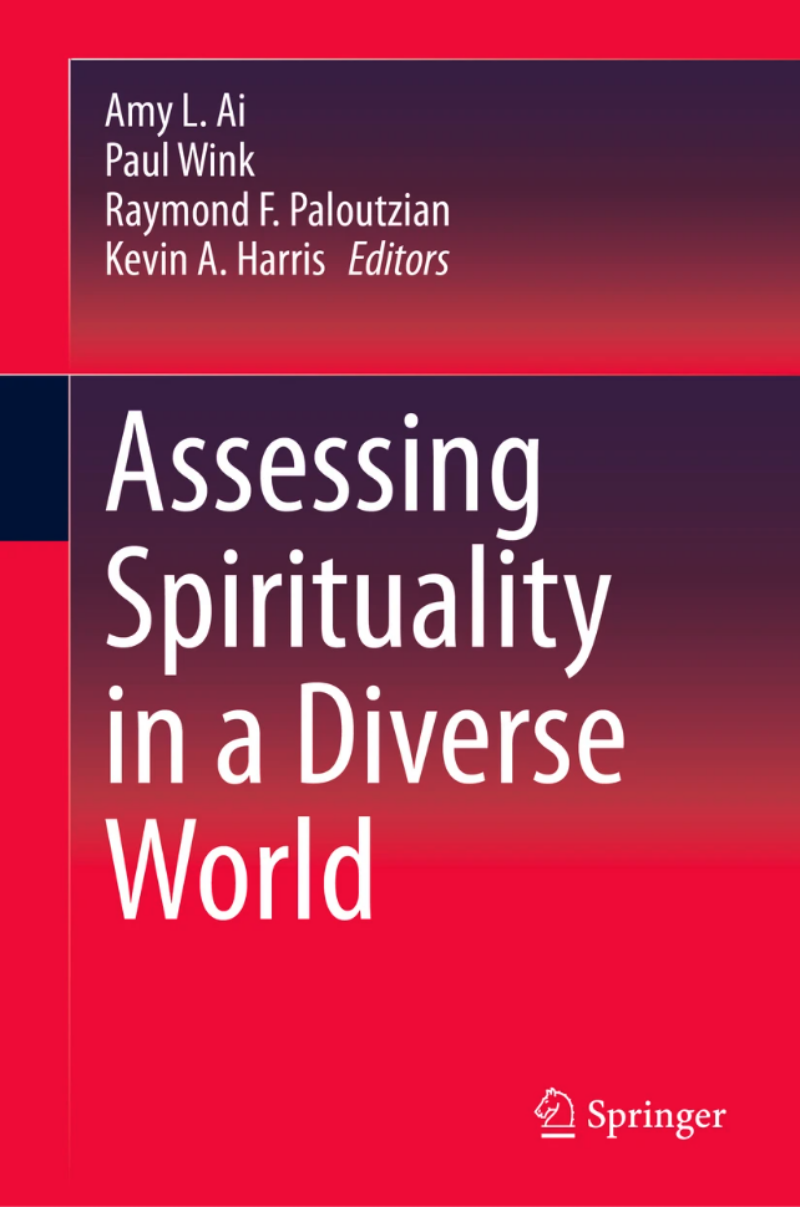
Under construction: The Measure of Diverse Adolescent Spirituality (MDAS) and refined findings from Mexican and Salvadoran youth
Citation King, P. E., Yoo, Y., & Vaughn, J. M., Tirrell, J. M., Geldhof, G. J., & Dowling, E. M. (2021). Under construction: The Measure of Diverse Adolescent Spirituality (MDAS) and refined findings from Mexican and Salvadoran youth. In K. Harris, A. Ai, & P. Wink (Eds.), Assessing Spirituality and Religion in a Diverse World. New York: Springer Press. Abstract This volume addresses an important problem in social scientific research on global religions and spirituality: How to evaluate the role of diverse religious and spiritual (R/S) beliefs and practices within the rapid evolution of spiritual globalization and diversification trends. The book examines this question by bringing together a panel of international scholars including psychologists, sociologists, and researchers in religious studies, public health, medicine, and social work. The content includes chapters describing innovative concepts of post-Christian spirituality, Eastern forms of meditation, afterlife beliefs associated with the three dominant cultural legacies, various…

The Measure of Diverse Adolescent Spirituality (MDAS) and Refined Findings from Mexican and Salvadoran Youth
Authors: Pamela E.King, Yeonsoo Yoo, Jennifer Medina Vaughn, jonathan M.Tirrell, G. John Geldhof, and Elizabeth Dowling Abstract: The Measurement of Diverse Adolescent Spirituality (MDAS) was developed to assess adolescent spirituality and religiosity for use with diverse youth. Researchers have emphasized the multifaceted nature of spirituality and suggested the need for robust measures to chart patterns of spiritual development in a culturally and developmentally valid manner. The MDAS was developed as a theory-based measure, grounded in a relational developmental systems metatheory (RDS), that views spiritual development as resulting from the coactions between an individual and the diverse systems in which he or she lives, especially as they pertain to the individual’s perceptions and responses to transcendence. The original MDAS was a 27-item self-report multidimensional measure of adolescent spirituality including three subscales of transcendence, fidelity, and contribution. This chapter reviews the ongoing process of developing the MDAS and applicability across two…
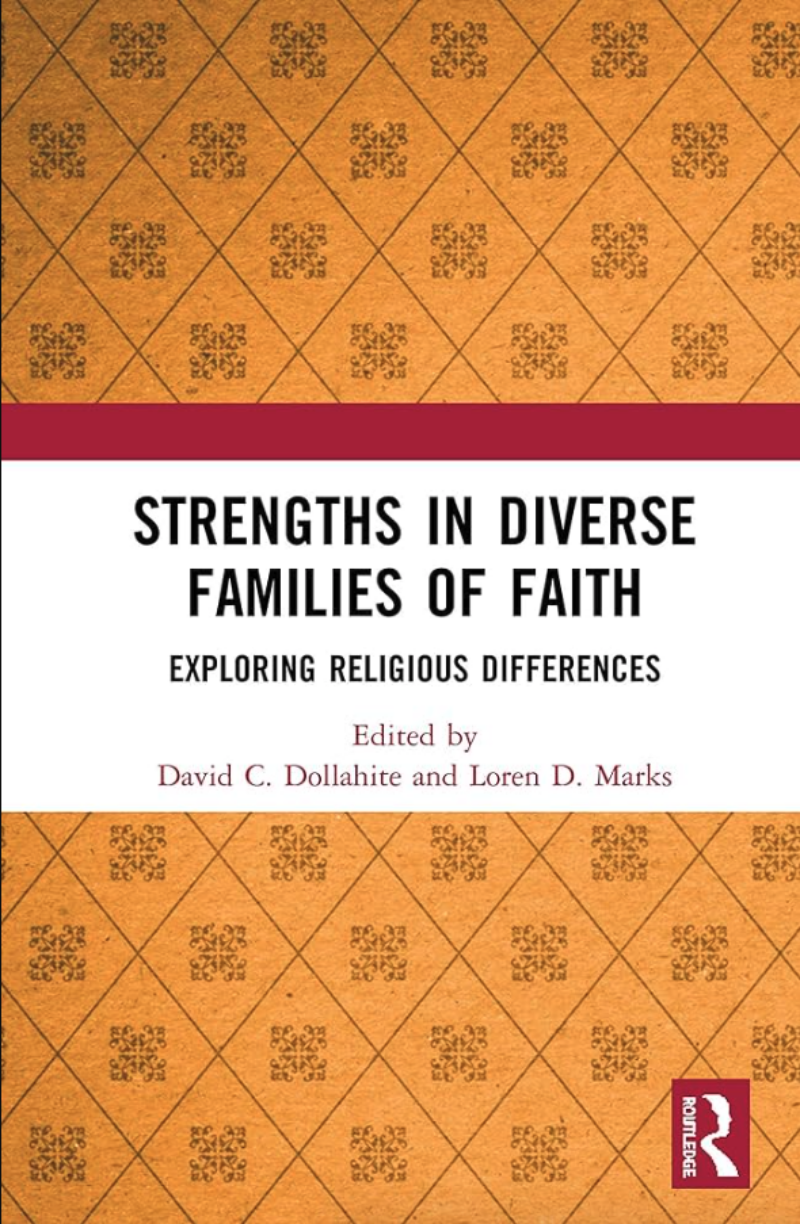
Loving God, loving others: The sacred among American mainline protestant families
Citation Moore, T. J., Hill, M. S., King, P. E., Palkovitz, R., Dollahite, D. C., & Marks, L. D. (2020). Loving God, loving others: The sacred among American mainline protestant families. In Dollahite, D. C., & Marks, L. D. (Eds.) Strengths in Diverse Families of Faith (pp. 117-132). Abstract This book explores how religious families draw on their spiritual beliefs, religious practices, and faith communities to help them strengthen their marital relationships and their parenting. Using in-depth interviews from eight religious groups – Asian American Christian; Black Christian; Catholic and Orthodox Christian; Evangelical Christian; Jewish; Latter-day Saint; Mainline Protestant; and Muslim – the book uses the interviewees’ own words to show how their religion impacts their lives and influences their relationships. The book also includes an introductory chapter which describes the study and the sample; a conceptual chapter which places the empirical chapters in theoretical context in sociological study of…

Exploring Religiousness and Hope: Examining the Roles of Spirituality and Social Connections among Salvadoran Youth
Citation King, P. E., Vaughn, J. M., Yoo, Y., Tirrell, J. M., Dowling, E. M., Lerner, R. M., … & Sim, A. T. (2020). Exploring religiousness and hope: Examining the roles of spirituality and social connections among Salvadoran youth. Religions, 11(2), 75. Abstract Given the strong link between religiousness and hope, we sought to further understand the relations of these potentially powerful resources for youth living in adversity. Although existing research suggests that religiousness might be associated with adolescent hope via spirituality and social connections, few studies have tested models that integrate both. Thus, as applied psychologists, the aim of this paper was to test a theoretical model in the lives of youth. Drawing on a Relational Developmental Systems metatheory, we sought to further elucidate the relations between religiousness and hope and to explore how involvement in the faith-based youth-development organization, Compassion International (CI),…
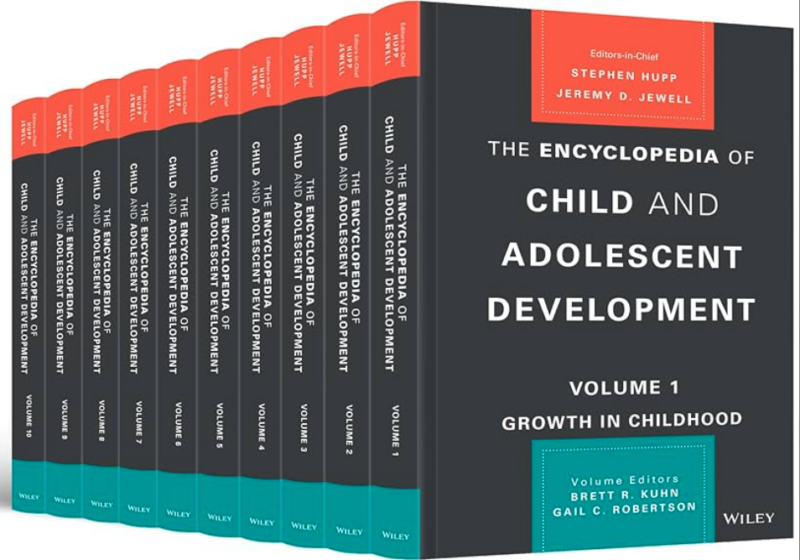
“Spirituality and Adolescent Development” in Encyclopedia of Child and Adolescent Development
Citation King, P. E., Vaughn, J. M., & Merola, C. (2020). Spirituality and adolescent development. In D. T. L. Shek & J. Leung (Eds.) Volume VII: History, Theory, and Culture. In S. Hupp & J. Jewell (Eds. in chief). Encyclopedia of Child and Adolescent Development. Wiley Blackwell. Abstract The Encyclopedia of Child and Adolescent Development presents the major theories, key concepts, disorders, and evidence-based practices of the field. Covering infancy through adolescence and emerging adulthood, this important work outlines major areas of research and examines specific topics, ongoing controversies, and current work being done by leaders in the field. The first work on the topic of its scale, the Encyclopedia offers scholarly, authoritative information from an international team of experts that spans ten volumes. The content of the encyclopedia is organized in two main parts—Child and Adolescent—and ten subparts. The first six volumes focus on topics of growth, behavior,…

Processes of religious and spiritual influence in adolescence: A systematic review of 30 years of research.
Citation Hardy, S. A., Nelson, J. M., Moore, J. P., & King, P. E. (2019). Processes of religious and spiritual influence in adolescence: A systematic review of 30 years of research. Journal of Research on Adolescence, 29(2), 254-275. Abstract This is a systematic review of 30 years (1988-2017) of empirical research on processes of religious/spiritual influence in adolescence. We followed a multi-step process that resulted in 241 studies organized according to eight research questions and the corresponding methods and analyses typically used to address them. We coded these studies based on the dimensions of religiosity/spirituality and the youth outcomes involved. In some cases (quantitative studies of mediation and moderation, as well as qualitative studies) we also coded a third process variable. Results of the coding process revealed a number of interesting patterns. First, religiosity/spirituality is generally adaptive for adolescents, protecting them from negative outcomes (e.g., risk behaviors and mental illness),…

Processes of Religious and Spiritual Influence in Adolescence: Introduction to a Special Section
Citation Hardy, S. A., & King, P. E. (2019). Processes of religious and spiritual influence in adolescence: Introduction to a special section. Journal of Research on Adolescence, 29(2), 244-253. DOI: https://doi.org/10.1111/jora.12509 Abstract This paper serves as the lead article introducing the special section of the Journal of Research on Adolescence focused on processes of religious and spiritual influence during adolescence. The purpose of the special section is to review prior theory and research on the processes by which religiosity and spirituality might influence youth outcomes, present original cutting-edge theory and research on processes of religious and spiritual influence, and point to the most fruitful directions and methodological approaches for future work in the area. The special section is guided by eight research questions which push researchers to go beyond mere bivariate associations between religion/spirituality and youth outcomes to unpacking the processes of influence at work. Copyright Year: 2024 Holder: John…

Religion, Spirituality, and Thriving: Transcendent Narrative, Virtue, and Lived Purpose.
Citation Schnitker, S. A., King, P. E., & Houltberg, B. (2019). Religion, Spirituality, and Thriving: Transcendent Narrative, Virtue, and Lived Purpose. In Hardy, S. & King, P. E. (eds.). Special section: Processes of religious and spiritual influence in adolescence, Journal of Research on Adolescence, 29(2), 276-290. Abstract A theory is proposed to explain how religion/spirituality (R/S) is related to positive youth development and thriving. The concept of telos is employed to define thriving as continued growth through strength-based living that leads to contributing to one’s communities and living out one’s ethical ideals. Virtue development is proposed as a primary process by which R/S promotes thriving. Virtues are defined as hybrid personality units emerging when characteristic adaptations are given meaning by a transcendent narrative identity. R/S contributes to virtue formation through the ideological, social, and transcendent contexts embedded within religion by providing opportunities to grow both the characteristic adaptations and transcendent…

Illuminating the use of the specificity principle to go inside the black box of programs
Citation Tirrell, J. M., Gansert, P. K., Geldhof, G. J., Dowling, E. M., Lerner, J. V., King, P. E., Sim, A. T. R., Iraheta, G., Williams, K., & Lerner, R. M. (2019). Illuminating the use of the specificity principle to go inside the black box of programs: The sample case of an El Salvador positive youth development program. In S. Verma, A. Petersen, & J. Lansford (Eds.), Sustainable human development: Challenges and solutions for implementing the United Nations’ Goals [Special issue]: Zeitschrift für Psychologie. Abstract The UN 2030 Agenda and Sustainable Development Goals (SDGs) call for disaggregating results of program effectiveness within subgroups. Using the Bornstein (2017) specificity principle, involving within-group assessments regarding what specific youth prosper in what specific ways in what specific programs, we analyzed data from 888 Salvadoran youth (50% female), aged 9–15 years (M = 11.60 years, SD = 1.7), participating in the Compassion International (CI)…

Spiritual Exemplars: The Emerging Adult Years
Explore the groundbreaking research by Pam King on young adult spiritual exemplars and their inspiring journeys.

Measuring Spirituality, Hope, and Thriving Among Salvadoran Youth
Citation Tirrell, J. M., Geldhof, G. J., King, P. E., Dowling, E., Sim, A., Williams, K., Iraheta, G., Lerner, J. V., & Lerner, R. M. (2018). Measuring spirituality, hope, and thriving among Salvadoran youth: Initial findings from the Compassion International Study of Positive Youth Development. Child & Youth Care Forum, 48(2), 241-268. Abstract Background The more than one billion children living in poverty worldwide are often marginalized from the resources needed for health and well-being, a situation that may create feelings of hopelessness and diminish chances for thriving. Compassion International (CI), a faith-based child-sponsorship organization committed to alleviating child poverty and promoting thriving, uses a strengths-based, positive youth development (PYD) perspective that emphasizes the importance of religious faith as an asset in the lives of youth. Objective In an initial assessment of CI’s approach to promoting PYD, we tested measures aimed at comparing youth enrolled in CI to…
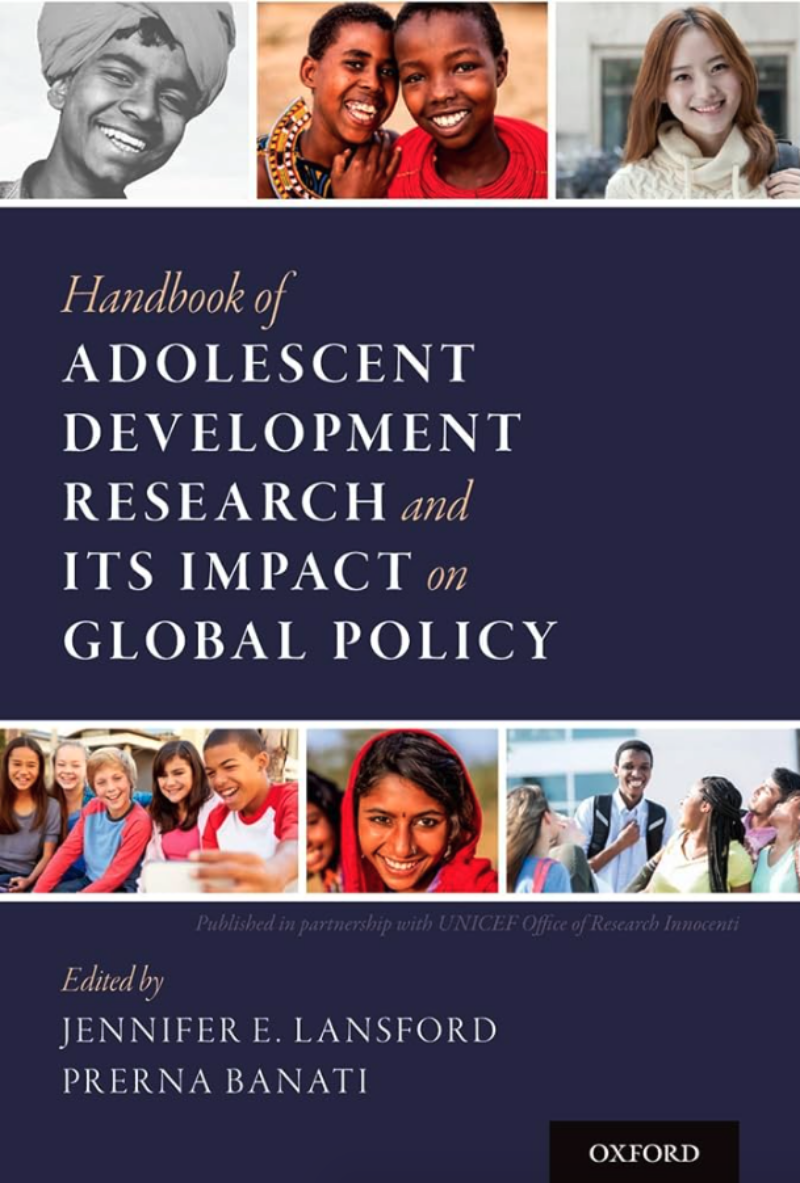
Studying Positive Youth Development in Different Nations: Theoretical and Methodological Issues
Citation Lerner, R. M., Lerner, J. L., Geldhof, G. J., Gestsdottir, S., King, P. E., Sim, A. T. S., Batanova, M., Tirrell, J. and Dowling, E. (2018). Studying positive youth development in different nations: Theoretical and methodological issues. In Lansford, J., & Banati, P. (Eds.) Handbook of Adolescent Development Research and Its Impact on Global Policy. New York: Oxford University Press. Abstract International interest is growing concerning using strength-based models of adolescent development to understand how mutually influential relations between individuals and their key settings may be a basis for positive, healthy development. Bidirectional relations models are linked to relational developmental systems (RDS) metatheory, with a focus on the positive youth development (PYD) model, the most used ininternational PYD-related research and programs. A three-nation, counterfactual, comparative, longitudinal study is described to understand if Compassion International programs enhance thriving of the world’s poorest youth. RDS metatheory ideas point to the need…

Varieties of social experience: The religious cultural context of diverse spiritual exemplars
Citation King, P. E., Abo-Zena, M., & Weber, J. (2017). Varieties of social experience: The religious cultural context of diverse spiritual exemplars. British Journal of Developmental Psychology, 35 (1), 127-141. Abstract From cultural developmental and relational developmental systems perspectives, the current study employed an exemplar research design along with qualitative content analysis to gain deeper understanding of how adolescents perceived the social influences on their religious and spiritual development (RSD) among religiously and culturally diverse youth. The sample included interviews of 28 highly spiritual youth aged 12–21 years (M = 17.73 years) from six countries and eight different religious traditions. Analysis revealed that 96% of participants reported multiple relational influences on their RSD and that these persons impacted their religiousness and spirituality through various processes such as teaching and encouragement. Portions of the narrative are presented to reveal how the meaning and influence of these interactions are informed by cultural…

Introduction to the British Journal of Developmental Psychology special issue on religion, culture and development
Citation Richert, R. A., Boyatzis, C. J. & King, P. E. (2017). Introduction to the British Journal of Developmental Psychology special issue on religion, culture and development. British Journal of Developmental Psychology Special Issue: Religion, Culture and Development, 35 (1), 1-3. Abstract An introduction is presented in which the editor discusses articles in the issue on topics including peer-reviewed research and theory on children and religion, the influence of religion as a cultural context, and the processes and mechanisms of religious and spiritual development. Copyright Holder: The British Psychological Society Year: 2024 DOI: https://doi.org/10.1111/bjdp.12179…

The reciprocating self: Trinitarian and Christological anthropologies of being and becoming
Citation King, P. E. (2016). The reciprocating self: Trinitarian and Christological anthropologies of being and becoming. Journal of Psychology and Christianity, 35(3), 215-232. Abstract This paper summarizes a Christological and trinitarian anthropology in order to propose a developmental teleology that offers a vision for being and becoming human. From a Christological perspective, Jesus Christ is the perfect image of God, and becoming like Christ as distinct persons is God’s intention for all of humanity. How humans are conformed to Christ occurs through and results in mutual, reciprocal relations with God, humans, and creation. Drawing on Christology and the doctrine of the image of God, I propose that living as reciprocating selves is God’s telos for humankind. As such, the significance of conformity to the image of God in Christ, human diversity, relatedness, and reciprocity are discussed in light of humankind’s relationship with God and one another. As humans respond to…

Preliminary exploration of the Measurement of Diverse Adolescent Spirituality (MDAS) among Mexican youth
Citation King, P. E., Kim, S., Furrow, J. F., & Clardy, C. E. (2017). Preliminary exploration of the Measurement of Diverse Adolescent Spirituality (MDAS) among Mexican youth. Applied Developmental Science, 21(4), 235-250. Abstract In the current article we propose and offer a preliminary test of an ecologically sensitive theoretical and methodological framework for understanding diverse adolescent spiritual development. The study summarizes the initial stages of development of the Measurement of Diverse Adolescent Spirituality (MDAS) that assesses three dimensions of spirituality: transcendence, fidelity, and contribution. We report our procedures and findings from an initial effort to contextualize the measure and validate the resulting scales with youth in Tijuana, Mexico. In the current study, 391 (211 females, M age = 13.78 years old) Mexican youth completed a self-report survey including the MDAS and measures of prosocial tendencies, daily spiritual experiences, and intrinsic religious motivation. Exploratory and confirmatory factor…
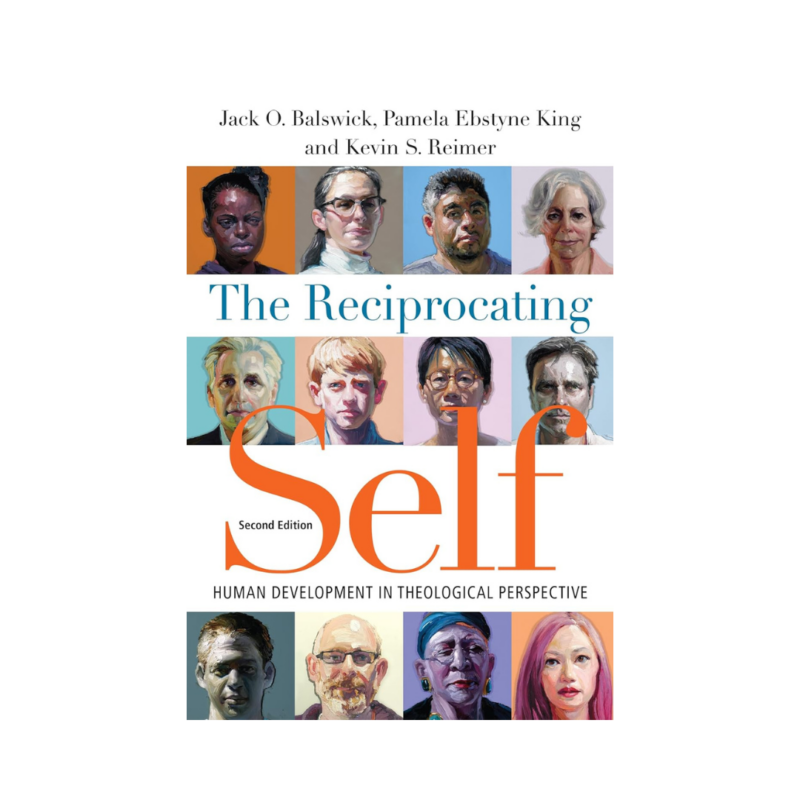
The Reciprocating Self: Human Development in Theological Perspective
Citation Balswick, J. O., King, P. E., & Reimer, K. S. (2016). The reciprocating self: Human development in theological perspective. InterVarsity Press. Abstract On the basis of a theologically grounded understanding of the nature of persons and the self, Jack O. Balswick, Pamela Ebstyne King and Kevin S. Reimer present a model of human development that ranges across all of life’s stages: infancy, childhood, adolescence, young adulthood, middle adulthood and elder adulthood. They do this by drawing on a biblical model of relationality, where the created goal or purpose of human development is to become a reciprocating self―fully and securely related to others and to God. Along the way, they provide a context for understanding individual development issues―concerns, tensions, worries or crises encountered by the self in the context of change. Awareness of these issues is most pronounced at developmental transitional points: learning to talk and walk, beginning to eat…

CI Study of Positive Youth Development
Pamela King and partners study the impact of Compassion International's programs on youth.

Effects of Mentorship and Spirituality on Youth Thriving
Pamela King evaluates a high school mentorship program to see how mentors help youth thrive - Evaluating the Village Christian 1:5® Circles of Care Program.

Religious and Spiritual Development
Citation King, P. E. & Boyatzis C. (2015). Religious and spiritual development. In M. E. Lamb & C. G. Coll (Eds.), Social and Emotional Issues (Vol. 3) of the Handbook of Child Psychology and Developmental Science (7th ed.). Editor-in-chief: R. M. Lerner. Hoboken, NJ: Wiley, p. 975-1021. Abstract Although religion and spirituality have long been an integral part of being human, this is the first empirical chapter to be included in the Handbook of Child Psychology. We examine major theoretical perspectives but emphasize the recent explosion of empirical findings on religion and spirituality in childhood and adolescence. Recognizing the centrality of bidirectional relationships between young persons and their context that contribute to religious and spiritual development, we advocate for an understanding of reciprocating spirituality. Within the chapter, we examine how children and adolescents develop in religiousness and spirituality in the context of proximal and more distal relationships. The chapter offers…

Adolescent Spiritual Exemplars: Exploring Spirituality in the Lives of Diverse Youth
Citation King, P. E., Clardy, C. E., & Ramos, J. S. (2013). Adolescent spiritual exemplars: Exploring spirituality in the lives of diverse youth. Journal of Adolescent Research, 29(2), 186-212. Abstract This qualitative study aimed to develop theory about psychological constructs relevant to spiritual development in diverse adolescents. Exemplar and Consensual Qualitative Research methods were used to explore 30 interviews of adolescents aged 12 to 21 years (M = 17.73 years) representing eight religions and six countries from around the world. Participants were nominated for living with profound spirituality within their own culture and completed semistructured interviews in their country of origin. After several iterations of analysis, participants’ discussions of spirituality in their lives were explored in terms of three dimensions of spirituality present in their lives: transcendence, fidelity, and behavior. Findings are considered in light of existing developmental theory, and implications for adolescent development are discussed. Copyright DOI: https://doi.org/10.1177/0743558413502534…

Evolutionary Psychology and Christian Views on Human Thriving
Thrive faculty and students engage scholars on evolutionary psychology, spirituality, and thriving.

Is Religion Natural? The Chinese Challenge
Justin Barrett leads scholars in exploring cognitive mechanisms that inspire religious thought and action.

Spiritual Transformation and Virtue Development in Adolescents in Young Life
Research by Sarah Schnitker and Justin Barrett indicates when and why camp experiences bring spiritual transformation.
40 Content Resources

Get Started
What is transcendence?
Spiritual health includes experiencing transcendence.
Dive Further

Ethics & Virtues
Our beliefs about love and how we live out love through values, views of right and wrong, and cultivating virtuous habits.

Vocation & Purpose
Contributing our strengths to the world by living out our response to love.

Identity & Narrative
Growing in clarity about who we are as a beloved, unique, embodied person and how we are related to others and the greater world.
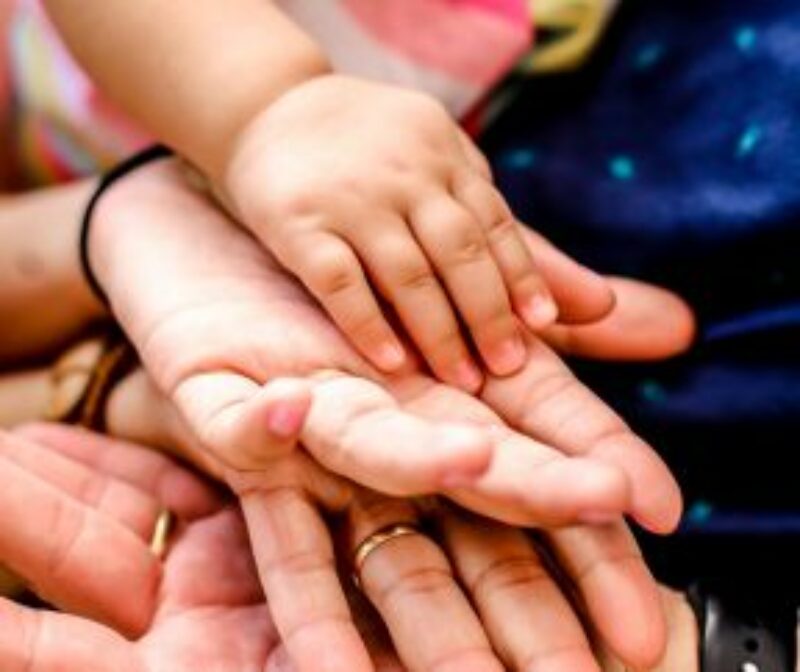
Relationships & Community
Connections provide a space of belonging where we can be fully known to ourselves and others and learn to give and receive love.

Habits & Rhythms
Healthy spiritual practices and regular rhythms allow us to slow down to gain insight, connect to love, and energize into purposeful endeavors.
